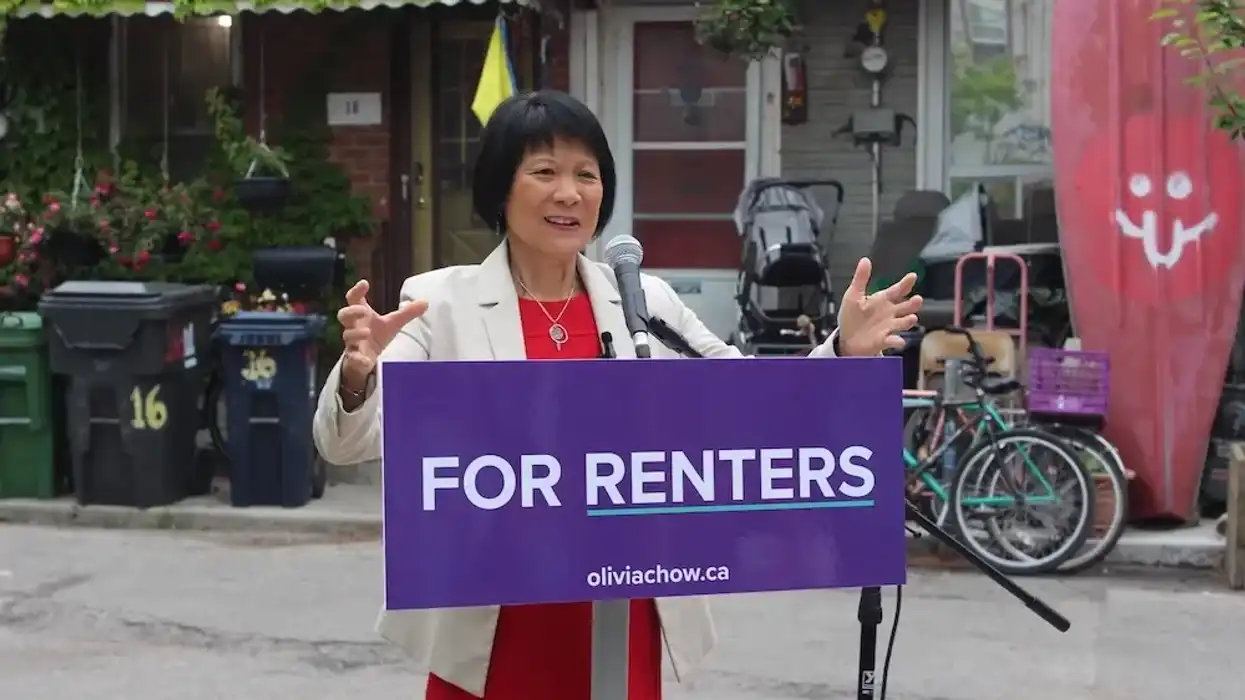Despite an unexpectedly tight race, Olivia Chow was elected Mayor of Toronto during Monday’s by-election. And now the conversation indelibly shifts to what she will do to solve some of the chronic housing problems facing Toronto -- and mind you, that will be without the help of strong mayor powers, which Chow has maintained she will not be utilizing during her term.
Greater Advocacy For Renters
Chow has laid out a number of renter-centric goals over the course of her campaign. One of her earlier promises was that she will establish a Renters Action Committee composed of City staff, renters, housing providers, and advocates. This dedicated task force would create anti-renoviction bylaws, advocate for real rent control, and review existing policies and programs related to renters.
She also seems to be all for bringing back rent control in Toronto -- which, of course, isn’t under her jurisdiction, but she has said she will do her part in 'urging' the Ontario government to institute real rent control for all rental units.
Chow has said that she will double the reach of Toronto’s rent bank to help 5,500 people each year and triple the reach of the Eviction Prevention in the Community program to help over 3,000 people a year.
With respect to Toronto’s existing RentSafeTO program, Chow has vowed to give it “real teeth” by investing in more dedicated staff, including more by-law enforcement officers and more contractors to address problems if the landlord has refused.
As well, Chow has spoken about establishing a Secure Affordable Homes Fund, which would be used to purchase and transfer affordable rental stock to not-for-profit, community, and Indigenous housing providers.
Upping The Vacant Home Tax
One of Chow’s more controversial initiatives will be to raise the Vacant Home Tax to 3%. She intends to use those funds to support the City’s existing affordable housing initiatives, including rent supplements.
Also on the topic of the Vacant Home Tax, Chow has spoken about combating some of the confusion surrounding the tax -- particularly as it pertains to non-English speaking residents -- with the use of public education facilitators and the creation of an information hotline.
Chow has additionally proposed raising the Municipal Land Transfer Tax on luxury homes, with new graduated rates on purchases of homes valued at over a number of certain thresholds. Those funds, garnered from less than 2% of home sales each year, will go towards supporting those experiencing homelessness.
Affordable Housing On City-Owned Land
As Toronto continues to grapple with a worsening housing crisis, Chow has vowed to build 25,000 rent-controlled homes over the next eight years on City-owned land. This is a move that would see the City act as the developer, taking the onus off of the private sector.
Of those 25,000 units, at least 7,500 would be affordable units and at least 2,500 would be rent-geared-to-income. To that end, she will streamline and simplify the approval process -- and more specifically, she has told STOREYS in a previous interview that she hopes to “batch up” applications to get them off the ground more efficiently.
This plan, she has said, will complement the City’s existing housing programs and initiatives, including Housing Now and the recently approved multiplex allowances.
Chow has also told STOREYS that she is all for building up density on main streets and along transit routes, saying that building up affordable and dense housing near the transit corridor helps city residents while also cutting down on parking requirements and supporting TTC ridership.
Strengthened Homelessness Supports
Finally, Toronto’s growing homeless population -- and the unsafe conditions they face living on the streets -- is not lost on Chow, who has said she will strengthen the City’s approach to supporting people struggling with homelessness and keeping people housed.
More specifically, Chow plans to create 1,000 new rent supplements to help people secure permanent housing, open new 24/7 respite spaces, and establish a new fund for services, which will be under the purview of community agencies, front-line workers, and people who have experienced homelessness themselves.
Many of the aforementioned programs and initiatives will go hand in hand with her goals surrounding mitigating homelessness, including doubling the reach of Toronto’s rent bank and tripling the reach of the Eviction Prevention in the Community program.





















